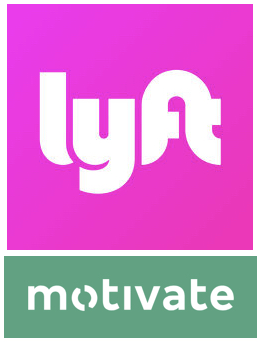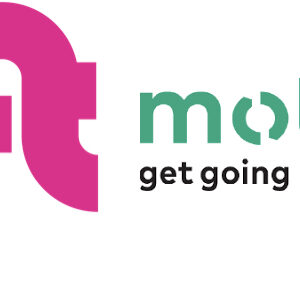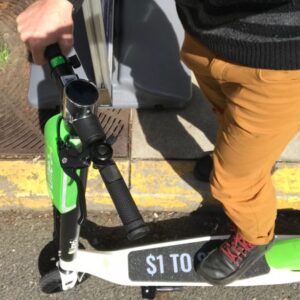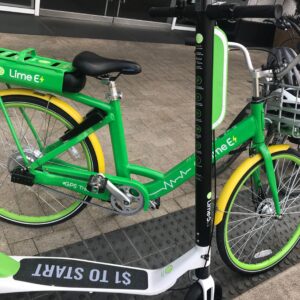Get used to saying Lyft Bikes.
For the past month there’s been widespread speculation that ride-sharing giant Lyft would purchase Motivate, the bike share company that operates Portland’s Biketown system (among many others).
Now the deal is official, which means Lyft is the owner of the contract between Motivate and the City of Portland. And with Motivate’s existing presence in major cities like New York (Citibike), Chicago (Divvy), Washington DC (Capital Bikeshare), San Francisco (Ford GoBike) and others, it gives Lyft 80 percent of all U.S. bike share trips and a massive mobility footprint.
Here’s the press release we just received from Lyft (emphases mine):
Introducing Lyft Bikes
We are excited to announce that Lyft has reached a transformative agreement to acquire Motivate, the largest bikeshare operator in North America. Together Lyft and Motivate will revolutionize urban transportation and put bikeshare systems across the country on a path toward growth and innovation.
“Lyft and Motivate have both been committed for years to the same goal of reducing the need for personal car ownership by providing reliable and affordable ways to move around our cities,” said John Zimmer, Lyft co-founder and president. “Bringing together Lyft and Motivate will accelerate our collaboration with cities and deliver even better experiences to our passengers and riders.”
This acquisition demonstrates Lyft’s commitment to a more sustainable world as part of our Green Cities Initiative, and comes on the heels of our recent carbon neutrality pledge. We will invest to establish bike offerings in our major markets and pursue growth and innovation in the markets where Motivate currently operates. We are particularly excited to work with cities on delivering innovation, including providing dockless and pedal-assist electric bikes to riders around the country, and Lyft will put resources behind the work that the Motivate team has begun.
As part of this agreement, Lyft is acquiring Motivate’s technology and corporate functions, including its city contracts. Motivate’s bike maintenance and servicing operations will remain a standalone business, retaining the Motivate name, and will continue to support bikeshare systems across North America.
Motivate brings a unique perspective on and expertise in operating bikeshare platforms in partnership with cities and local governments across the country. Motivate’s collaborative approach with cities mirrors the way Lyft has historically worked with regulators and aligns with our strategic vision for bikeshare nationwide.
Advertisement
Motivate operates many of the largest bikeshare systems in North America, including Citi Bike (New York), Ford GoBike (San Francisco Bay area), Divvy (Chicago), Blue Bikes (Boston metro area), Capital Bikeshare (Washington, D.C. metro area), BIKETOWN (Portland metro area), CoGo (Columbus, Ohio), and Nice Ride (Minneapolis). In 2017, 80 percent of the bikeshare trips in the United States were on Motivate-operated systems. The demand for bikeshare and the potential to serve even more Americans with this powerful urban transportation option are clear.
“How we get around cities is changing rapidly, and the combination of Lyft and Motivate will bring tremendous new resources and energy to making sure that bikeshare plays a fundamental role in the new urban mobility,” said Motivate Executive Chairman Steve Koch. “Together, we believe that integrating our services in partnership with the public sector will transform the urban transportation landscape, increase bike ridership, and make our cities better.”
Bikeshare is a natural extension of Lyft’s core approach to improving transportation access and building community through offerings such as shared rides and the integration of public transit in our app. These investments are making it possible to have fewer cars on the road and reduced congestion. Through Motivate’s efforts, bikeshare has been a safe, reliable, and equitable addition to the transit network in many major cities. Motivate has set industry best practices around community engagement and low-income bikeshare memberships. Transportation equity and inclusion are top priorities for Lyft as we enter the bikeshare space, and we plan to dedicate even more resources to make sure that our bikeshare programs are accessible regardless of riders’ income, especially in neighborhoods with limited access to public transportation.
This is an exciting moment for both Lyft and Motivate. Between us, we already serve tens of millions of riders every month, and we can’t wait to combine our unique talents to support cities in their efforts to bring sustainable transportation like bikeshare and rideshare to millions more people.
Portland-based micromobility expert Michael Naka says the move is all about real estate for Lyft. He says the company wants to build “mobility hubs” at the thousands of stations they now own near transit hubs and commercial destinations.
Here’s a few examples of what a Lyft “Mobility Hub” could look like.
Lyft’s Baltimore bikeshare hub partnership: https://t.co/P0XqyV1k4j
Lyft’s SFMTA Scooter Application: pic.twitter.com/ozUjR9feKf
— michal Naka (@michalnaka) July 2, 2018
In other local mobility news, dockless scooter company Bird has started hiring “chargers” in Portland (contract employees who can earn money by picking up and recharging scooters). Bird is one of five dockless e-scooter companies that have been invited to participate in a pilot program set to launch in Portland later this month.
— Jonathan Maus: (503) 706-8804, @jonathan_maus on Twitter and jonathan@bikeportland.org
Never miss a story. Sign-up for the daily BP Headlines email.
BikePortland needs your support.








Thanks for reading.
BikePortland has served this community with independent community journalism since 2005. We rely on subscriptions from readers like you to survive. Your financial support is vital in keeping this valuable resource alive and well.
Please subscribe today to strengthen and expand our work.
Terrible news. While I know lyft has managed to weasel its cutesy logo into the heart of liberals everywhere, it still is ultimately a huge parasitic “gig economy” wage breaker, against unions or worker rights, and of course very much pro automobile (and the infrastructure that comes along with it). So disappointing.. and coming from NYC where our dumbass political leadership hasn’t invested one cent in Citibike, I guess i shouldn’t be shocked.
bikeshare in Portland had better start being profitable……
Buy and ride your own bike.
We can’t do both?
easy for you to say Jim.
I have FOUR bikes. I still ride Biketown every now and again.
The most interesting thing I found in this article was right near the end where scooter company bird announced they would be hiring “chargers” to pick up and recharge scooters at night. I had been wondering how this was accomplished. Will this change the late night landscape of town? as dozens of night-owls race down the streets and sidewalks riding two scooters simultaineously with another one or two slung over there shoulders desperate to get to the charging station and avoid getting run over by garbage trucks.
I read a profile of some chargers in San Francisco. They usually drive around picking up scooters.
It seems like many of these high tech transportation schemes rely on people not fully understanding the full costs of car ownership. Uber, Lyft, “Charger” all seem like modern variations on the Pizza Delivery Guy model. Seems more like we are moving back in to the victorian era of rag pickers and cesspool cleaners than towards the Jetsons.
The kind of vehicle you need to qualify as a Uber/Lyft driver is going to have operating costs in the range of $0.30 – $0.50 per mile. Less if it is efficient, a few years old, and you do your own maintenance. Most drivers are probably in the $0.40 – $0.50 range. It seems that the only way this works out financially is if the driver is literally using this as a way to afford their car payments. I have heard that weekend evenings are more profitable, though.
Bike town hubs may become small cell platforms and generate revenue for the city
Small cell stations need more power than the little solar panels that only some Biketown hubs have. The location of those hubs (street level) is also probably less than optimal. Streetlight poles are a more likely location. If small cell ever gets deployed.
Small cell stations need more power than the little solar panels that only some Biketown hubs have. The location of those hubs (street level) is also probably less than optimal. Streetlight poles are a more likely location. If small cell ever gets deployed.
Lyft is still fighting tooth and nail against EVs in California, FYI.
http://www.sfexaminer.com/lyft-offers-zero-support-zero-emission-bill/
(To clarify – that’s electric automobiles. Cool to see they’re now going to actually have some EV bikes though!)
I’d fight any and all attempts at government regulation of my business too.
So now the publicly-funded bike shares in major cities will be a revenue stream for a “sharing” economy wagebuster that is subcontracting service and maintenance to what left of Motivate. I do not see this ending well.
The real estate capture is good for them, but I think the real value going forward is in the city partnerships and their working relationships. The curb space they are getting is not nearly enough for what will be needed and the companies with the best city partnerships will likely be the winners. I think we are seeing the end of the rogue days and the beginning of the gold rush for municipal partnerships.
Adding electric power only makes pedaling easier while the battery lasts — all other aspects of cycling remain the same.
There are all kinds of reasons why people don’t cycle. Until e-bikes started becoming a thing, the idea that lack of electric assist was a significant impediment to cycling just wasn’t thrown around. The focus has always been on infrastructure and drivers, and those things remain the same. The rain that empties so many cycle paths much of the year will still be there, and so will the cold.
The service area for the e-bikes is tiny. The ride data for BikeTown showed the service was used for recreational riding. What basis do people have to believe that e-bikes will noticeably change peoples’ behavior?
The main beneficiaries of this will be the tourists who want to experience the cycling town image.
It will be interesting to see if Lyft/Motivate tries to integrate the Biketown app into the Lyft app. Lyft/Motivate do not own Biketown, they are the contracted operator, and depending on how the city-Motivate contract is written, they may not have the right to integrate the two apps, without the city’s consent.
Personally I’d like to see the Biketown app remain standalone, rather than Biketown users be forced to become Lyft subscribers.
They could do both.